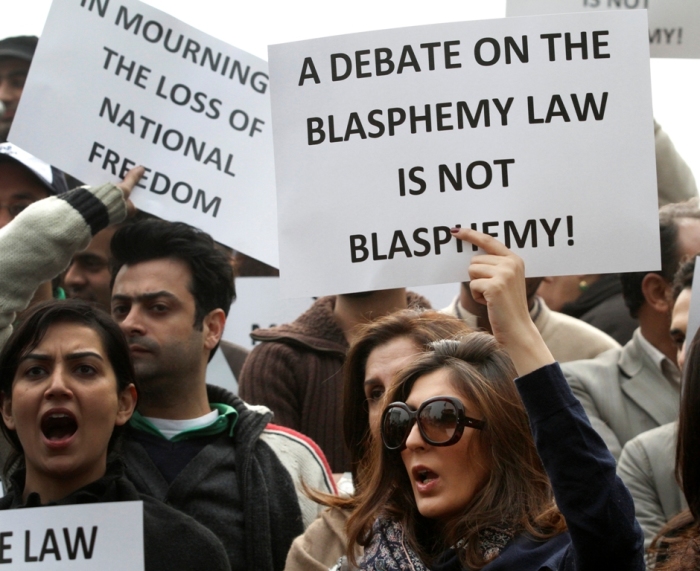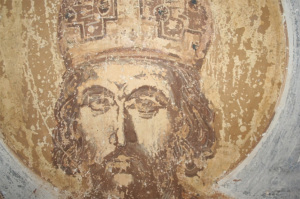Pakistan acquits Christian man sentenced to death for 'blasphemy,' but he remains in danger

A Christian man sentenced to death has been acquitted by a Pakistani court six years after he was charged with blaspheming the Islamic prophet Muhammad.
On Tuesday, the Lahore High Court acquitted Sawan Masih, a street sweeper from the eastern city of Lahore who was sentenced to death in March 2014 under Pakistan’s notorious blasphemy laws, PTI reports.
“A Lahore High Court division bench headed by Justice Syed Shehbaz Ali Rizvi acquitted Sawan Masih,” a court official told PTI on Tuesday. The court official went on to say that the Lahore High Court also ordered Masih to be released from custody.
Masih, a father of three, was accused by his Muslim friend, Muhammad Shahid, of insulting the Islamic prophet Muhammad during a conversation in the eastern Lahore city's Joseph Colony. According to Shahid, Masih said, “My Jesus is genuine. He is the Son of Allah. He will return while your prophet is false. My Jesus is true and will give salvation.”
However, Masih denied the charges and said the accusations were made due to a property dispute.
The following day, mosques recounted the accusation against Masih over their PA systems, prompting a mob of more than 3,000 Muslims to loot and burn 180 Christian homes, 75 shops, and at least two churches. Amid the violence, Christian families were forced to flee the area.
Masih was handed over to the police and was later charged under Section 295-C of Pakistan’s Penal Code. He was later sentenced to death under Section 295-C by Judge Chaudhry Ghulam Murtaza, saying he "must be hanged and fined," in a trial held in the Lahore Camp Jail due to security concerns.
The sentencing also included a fine of Rs.200,000 (roughly $2,050).
Masih filed an appeal against the death sentence, raising objections to the police investigation and prosecution, and pleading that the blasphemy charges were fabricated by individuals who wanted to occupy the property of the Joseph Colony.
"The trial had ignored the basic principles of criminal justice in general and principles of Islamic Justice in this case. It committed material irregularity in non-reading and misreading of the evidence on record that has caused serious miscarriage of justice.
"The trial court completely ignored a serious lapse in the prosecution case of 33 hours of un-explained ordinate delay in recording the FIR over such a sensitive issue by the complainant and also ignored, the case law of the superior courts cited at the Bar by the defense counsel," Masih said in his appeal.
The Lahore High Court decided that the prosecution had failed to establish that Masih had committed blasphemy and acquitted him reversing his death sentence.
However, PTI notes that though Masih will be freed soon, his family faces threats and is in hiding.
William Stark, persecution watchdog International Christian Concern’s Regional Manager for South Asia, applauded the ruling, noting it is “rare to see such a high profile blasphemy case against a Christian justly resolved at the High Court level in Pakistan.”
However, Stark said ICC is “deeply concerned for the safety of Sawan and his family,” as extremists in Pakistan are “known to target individuals accused of religious crimes, like blasphemy, even if they have been acquitted.”
“The abuse of Pakistan’s blasphemy laws must be curbed and false allegations must be rooted out and punished. Too often these laws have been a tool in the hands of extremists seeking to stir up religiously motivated violence against minority communities. Without real reform, religious minorities, including Christians, will face more false blasphemy accusations and the extreme violence that often accompanies these accusations.”
Amnesty International notes that Pakistan’s notorious blasphemy laws are often used against religious minorities and others who are the target of false accusations. They also “embolden” vigilantes prepared to threaten or kill the accused, it says.
At the U.S. State Department’s 2019 Ministerial to Advance Religious Freedom last July, Pakistani human rights activist Shaan Taseer said there are as many as 200 people jailed in Pakistan on blasphemy charges.
In September, police in Pakistan’s Khyber Pakhtunkhwa province arrested a Christian man on charges of blasphemy after residents alleged they found pages torn from a Quran inside a drain. He now faces the death penalty.
In August, a Christian man was charged with blasphemy for making a theological argument on Facebook that Muslims deemed insulting toward the Islamic prophet Muhammad. He too is now facing a potential death sentence for the post.
In 2014, a Christian couple was burned to death inside of a brick kiln by an enraged Muslim mob after they were falsely accused of ripping pages out of a Quran.
Pakistan is ranked as the fifth-worst country in the world when it comes to Christian persecution on Open Doors USA’s 2020 World Watch List.





























